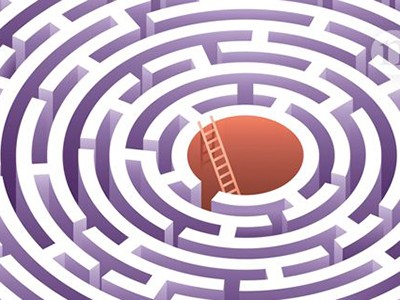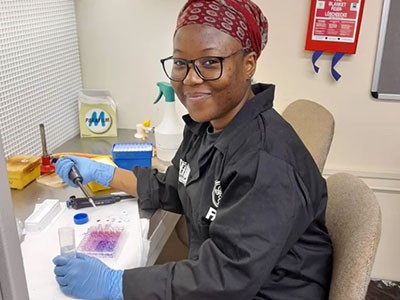
[ad_1]
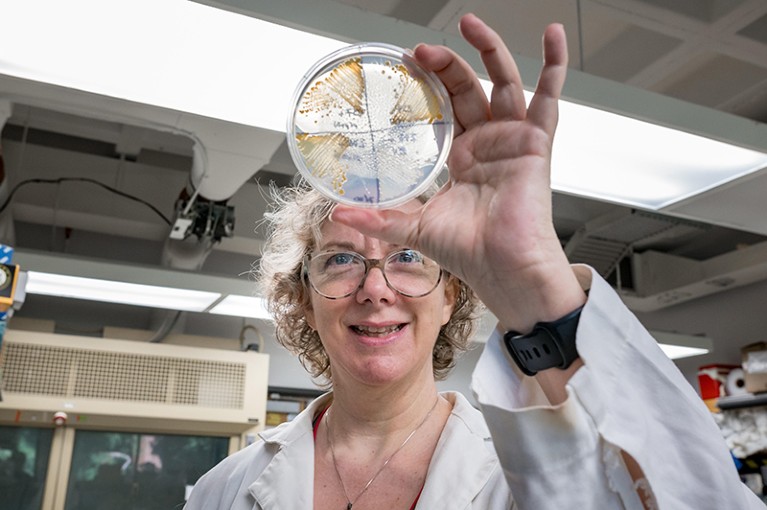
Microbiologist Kati Geszvain highlights her own failures as examples for current students.Credit: Jason Halley/California State University, Chico
Distraught and panicking, Jess McLaughlin logged into their Twitter account last October and wrote a desperate, late-night tweet.
“I feel like I’m just not going to succeed in academia anymore — that I’ve fucked up too bad to come back from, and that my dissertation fiasco is going to be a stain on my CV I’ll never escape from.”
For 15 months, McLaughlin had worked to salvage their PhD dissertation on avian genetics in Panama at the University of Oklahoma in Tulsa. They failed their first dissertation defence in July 2021: the committee said they needed to analyse more sequencing data to validate the findings. McLaughlin made the changes, and resubmitted the dissertation, but it still had some formatting problems. They addressed those and re-resubmitted. Still, failure loomed.
“This stuff happens more than we realize in academia. But there’s so much shame attached to it that nobody talks about it,” they say.
So McLaughlin did something different: they asked for other scientists to share their failures. They had hoped that one or two people might chime in — but instead they received responses from scores of scientists and academics, providing story after story of finding success after failure. This was the balm that McLaughlin needed to push through the last round of dissertation edits.
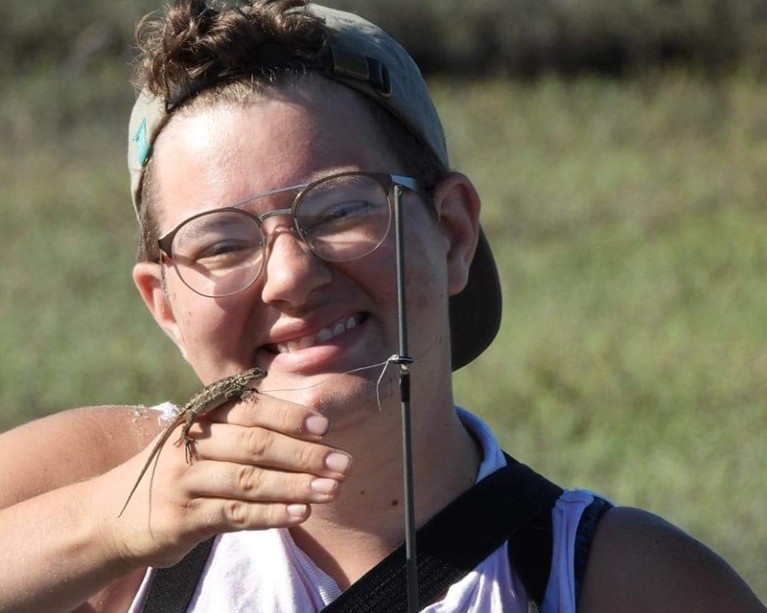
Evolutionary geneticist Jess McLaughlin’s tweet about their own PhD failures prompted an outpouring of similar stories.Credit: Alex Holt
Data on the proportion of PhD students who fail their dissertations are scarce. A 2011 analysis of more than 26,000 doctoral students in the United Kingdom by the Higher Education Funding Council for England (now UK Research and Innovation) found that 1 in 5 did not complete their degree programme (see go.nature.com/3dsar4). Most of these students dropped out, but 3.3% failed their viva, the oral defence of their dissertation.
How to train early-career scientists to weather failure
Andrew Stoehr, like most PhD students, didn’t know this. As a candidate in ecology and evolution at the University of California, Riverside, Stoehr didn’t pass his oral exams in 2002 and was devastated.
“I was mortified,” he says. “I felt like I’m going to crawl under a rock and I’m going to stay there for seven weeks.”
Stigma and shame mean that few who fail share their experiences. This reinforces the idea that failure is both rare and disastrous, neither of which is true, says Anna Thompson, a biology instructor at Feather River College in Quincy, California. That’s why Thompson and other scientists have begun to open up online and in lectures about their PhD failures. This radical honesty will help the next generation of researchers to learn to accept failure and bounce back from inevitable disappointments.
Talk about it
When one of his advisers saw how distressed Stoehr was after failing his oral examination, they invited him to their office for a chat. During the conversation, the adviser shared a litany of grant proposals that had gone unfunded and failed experiments that had failed just that week. It was just what Stoehr needed to hear.
“I felt I could come back from this,” Stoehr says. “It was about the research, not about me.”
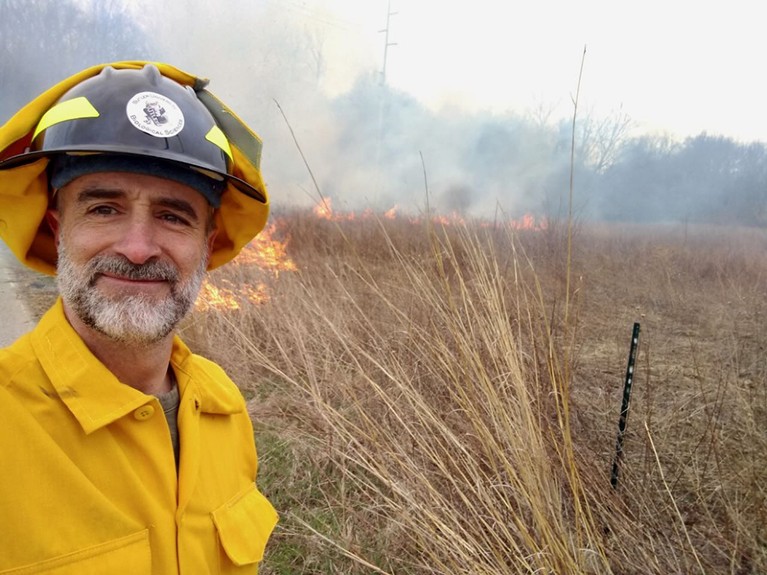
Ecologist Andrew Stoehr says its important to push back on the academic narrative that success is the rule.Credit: Andrew Stoehr
Thompson does this with her students, too — many of whom are the first in their families to pursue higher education. Many of them see her current success as a teacher and assume that she has always been successful. But that isn’t the case. Partway through her PhD programme at the University of California, Berkeley, Thompson found herself juggling a dissertation and a newborn, as an unexpectedly single parent. She opted to graduate with a master’s degree and to teach at a community college.
“It was a really good decision” that allowed her to be a good parent, Thompson says. Both Thompson and Stoehr say that it’s important to push back against the dominant narrative in academia that success is the rule and failure is a crime. Many people who pursue a doctoral degree are ambitious, driven and intelligent — traits that will serve them well in their careers, says Kati Geszvain, an environmental microbiologist at California State University, Chico. But she adds that these characteristics can amplify a surmountable failure into a catastrophe, creating the perfect storm for depression, anxiety and other mental-health issues to brew. Sharing your setbacks can seem counter-intuitive, especially when these events stir up feelings of shame and inadequacy. But that’s why Geszvain shares her experiences and encourages her students to do the same.
How failure benefits science
In her first attempt to earn a PhD, Geszvain moved thousands of kilometres away from her tight-knit family in Wisconsin to Houston, Texas, a decision that left her lonely and stressed out. After she “crashed and burned” on her qualifying exams, Geszvain took a break from her studies, and she then entered a different PhD programme at an institution closer to home. Although the process wasn’t always smooth sailing, Geszvain felt that she was in the right place, working on the right project, with the right people. She graduated in 2003 with a PhD in microbiology from the University of Wisconsin–Madison.
“I like to be an example that you can fail at your first attempt at graduate school and still end up succeeding. Hopefully, that knowledge takes a little bit of the stress off, so [people] can relax a little bit and just do their best,” Geszvain says.
Choose your adviser carefully
Like many scientists who spoke to Nature about their failed or nearly failed PhD experiences, counselling psychologist Mick Cooper at the University of Roehampton in London says that the adviser–student relationship can often be a source of challenges. Many aspiring doctoral students use an adviser’s research topic to guide their choice of programmes and laboratories — and for good reason. But Cooper encourages students to think about whether their adviser will be able to support their chosen research methods.
Cooper had failed to consider this connection when he pursued his PhD at the University of Sussex in Brighton, UK, in the mid-1990s. His adviser was in the cultural-studies department, but Cooper switched to working towards a psychology PhD partway through his programme. At his viva in January 1996, the outcome was less than stellar.
“What I did wasn’t a bad piece of work, it just wasn’t fitted to the expectations of the exam,” Cooper says.
His committee gave him the chance to resubmit, but that would mean starting his research again from scratch, with a more intense focus on quantitative analysis. Cooper ended up finding a new adviser for his revamped project, which set him on the path to success. No supervisor is perfect, so finding scientists in your department who can pitch in with mentoring or join your dissertation committee can help shore up areas where your main adviser doesn’t shine, he says.
Plan to fail
While working on her PhD in molecular biology at the University of Ghana in Accra, Pearl Akazue had to become an expert at anticipating potential hiccups in her research. Reagents and equipment often had to be ordered months in advance, owing to long shipping times and customs waits. A single error could cost her months. Many of her university friends working towards PhDs were unable to finish their programmes because they ran out of time or money.
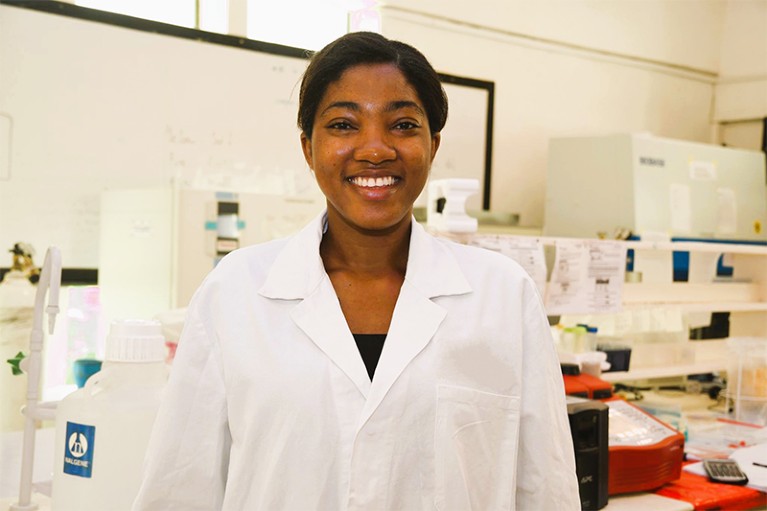
As a PhD student in molecular biology in Ghana, Pearl Akazue learned to anticipate failures and to come up with workarounds proactively.Credit: Pearl Akazue
Although Akazue successfully defended her PhD, her studies were fraught with failure. Now she considers these setbacks the key to her success, because they forced her to think through the importance of every step and to understand the functions and purpose of standard lab equipment so that she could create replacements when things broke or supplies ran low. To save her sanity, Akazue stopped pondering what could go wrong and started thinking about what she could do when it inevitably did.
“Having a clear goal in mind makes it easier for you to break that down into action,” Akazue says. “Lots of things will not be within your power.” Instead, she encourages students to focus their efforts on what they can control.
Halfway through his PhD research at the University of Cambridge, UK, Ian Sudbery, now a bioinformatician at the University of Sheffield, UK, realized that his project was “crap”. While performing a big analysis on data that he had generated while searching the genome for a type of RNA that silences harmful genes, he encountered a major flaw in his experimental design. He didn’t have enough depth of sequencing — meaning that he couldn’t sequence and analyse the genome enough times — to detect rare interfering RNAs. “It changed everything,” he says.
His first mistake was pretending that the analysis never happened, and that his research project was on track. Eventually, Sudbery scraped together enough data to shape into a thesis. His examination, he says, was “fairly rough”. It lasted 5.5 hours, and his committee ruled that his thesis would need major revisions. As he worked around this roadblock, Sudbery kept getting sidetracked by his problematic analysis and why depth of sequencing was so important for understanding -interfering-RNA function. In 2014, seven years after he finished his PhD, he published a paper on the topic that has become his most cited article (D. Sims et al. Nature Rev. Genet. 15, 121–132; 2014).
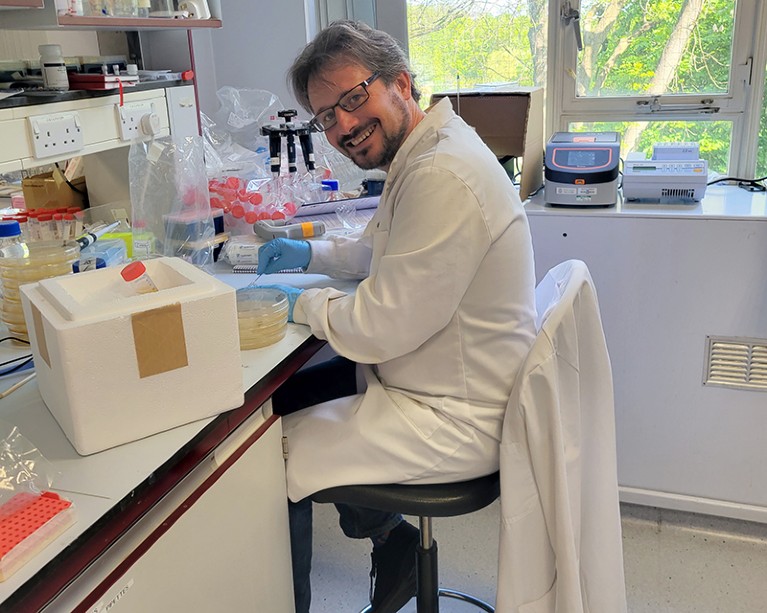
Part of Ian Sudbery’s ‘failed’ PhD project turned into his most-cited paper seven years later.Credit: Stuart Wilson
Stoehr found that his committee’s advice about his failure ultimately led to a top paper (A. M. Stoehr and H. Kokko Behav. Ecol. 17, 751–756; 2006). After he took a few weeks to process what had happened, conversations with his advisers revealed that formal mathematical modelling of some of his hypotheses would set up the rest of his experiments more effectively. In the process, Stoehr built collaborations with scientists outside his institution. These researchers became key teammates as he finished his PhD in ecology and launched his own lab at Butler University in Indianapolis, Indiana.
And sometimes a setback can give researchers a springboard to leap into a satisfying career path. When Thompson became a new parent, a colleague told her that she could teach at a community college with a master’s degree. She had found the solution she was looking for — and never looked back.
Failure isn’t final
Despite his position as a tenure-track computational biologist at Harvard Medical School in Boston, Massachusetts, Sudhir Thakurela has found that the path to success is paved with failure. Low scores on secondary-school exams left him with few options for university. He did complete his undergraduate work, but he then failed an exam that was crucial to get into medical school. He instead earned a master’s degree in computational biology, but struggled to find a place in a PhD programme.
How to bounce back from a PhD-project failure
While working in the biotechnology industry, Thakurela decided to take a long, hard look at his failures, to work out what was keeping him from succeeding.
His self-analysis showed him that he was “not focusing on the right area”, he says. “I definitely wanted to do research and to do that I knew I had to be persistent.” So, he reworked his CV and cover letters and focused on finding programmes that would use his -computational-biology skills.
It paid off, and in 2012, he started a PhD programme at Johannes Gutenberg University Mainz in Germany.
McLaughlin’s persistence paid off, too. Stressed out, broke and exhausted, they finally earned the title Dr McLaughlin last December, and moved on to a postdoc programme at the University of California, Berkeley.
“That was just such a huge weight off my shoulders,” they say.
Sharing their experiences has been part of the healing process. McLaughlin says they felt a lot of pressure from the scientific community to not talk about what they went through, because sharing that would be a ‘career killer’. But they realized that any employer who would hold their challenges against them probably wouldn’t be a good fit. And that ‘CV stain’ they were so worried about has proved a mere hiccup: McLaughlin will begin a second postdoc programme at the University of Massachusetts Amherst in a few weeks.
[ad_2]
Source link


